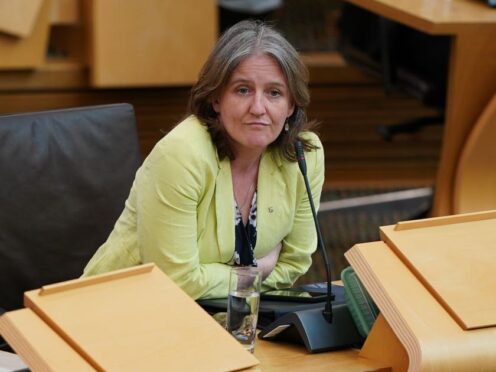
The National Care Service (NCS) Bill has passed its first stage at Holyrood, with a minister saying an overhaul of the care system is needed as “the status quo is not an option”.
However, all opposition parties voted against the Bill, citing concerns about a lack of clarity on the exact functions of the NCS and its ultimate cost.
It comes after an earlier attempt by Labour to refer the Bill back to committee stage was voted down.
Many of the concerns are around the use of “co-design” to create the service, with the Government choosing to pass a framework Bill and fleshing out the detail of the NCS in secondary legislation.

The Bill has already seen several delays and changes to the original plans – with local authorities now retaining responsibility for social care staff and assets.
The regional care boards initially proposed will instead be a single national care board.
On Thursday, social care minister Maree Todd said more information would be provided “as soon as possible”.
As the Scottish Parliament debated the general principles of the Bill, Ms Todd said a recent review of the care system and extensive consultation had made an “overwhelming” case for change.
She said: “This Bill is our chance to effect the meaningful change that we all agree is needed.
“The National Care Service will provide greater transparency of the delivery of care, improve standards, support an improvement in pay and conditions for workers and provide better support for unpaid carers.”
She continued: “Many campaigners have been waiting a long time for this, but some don’t have a long time.
“And I know from listening to them that the status quo is not an option, that we cannot delete or change.”
Labour’s Pam Duncan-Glancy intervened in the minister’s speech, saying disabled people and users of social care had received promises of improvements for “decades”.
She asked the minister: “Without any detail of this in the Bill, how can the Government expect people to to believe them this time?”
Ms Todd said she agreed that people had waited “a great deal of time” but said “let me assure you and let me assure the public that this change is coming.
Under the latest plans, the “go live” date of the NCS has been pushed back to 2029, with the Bill also containing provisions to enhance breaks for carers and Anne’s Law – which will strengthen the rights of care home residents to see their loved ones.
Scottish Tory Dr Sandesh Gulhane said: “There’s a dearth of detail and many unanswered questions.
“This Bill is far from ready for a Stage One vote.”
He said the Bill had already been delayed four times, going on to say: “Being asked to vote on this Bill, without knowing exactly what we are voting on, is like buying a car without knowing the make, model or colour.”
The NCS Bill passed stage one with 63 votes in favour, 51 against and one abstention.

Enjoy the convenience of having The Sunday Post delivered as a digital ePaper straight to your smartphone, tablet or computer.
Subscribe for only £5.49 a month and enjoy all the benefits of the printed paper as a digital replica.
Subscribe